When the author of Ice Cold: A Hip-hop Jewelry History, Vikki Tobak, treads the tightrope between hip-hop music and fashion industry, precision dictates her research. As she lends this expertise to curating an exhibition that shares its theme with her book, she erects an indomitable narrative of the music genre’s evolution over the past five decades with historically significant and culturally invaluable artefacts.

Ice Cold: An Exhibition of Hip-Hop Jewelry at the American Museum of Natural History
| Photo Credit:
Special arrangement
On view in the Melissa and Keith Meister Gallery within The American Museum of Natural History’s Allison and Roberto Mignone Halls of Gems and Minerals, Ice Cold: An Exhibition of Hip-Hop Jewelry celebrates hip-hop’s cultural influence through custom-made jewellery from its biggest stars, including Slick Rick, A$AP Rocky, Nicki Minaj, The Notorious B.I.G., Bad Bunny, Erykah Badu, and many more.
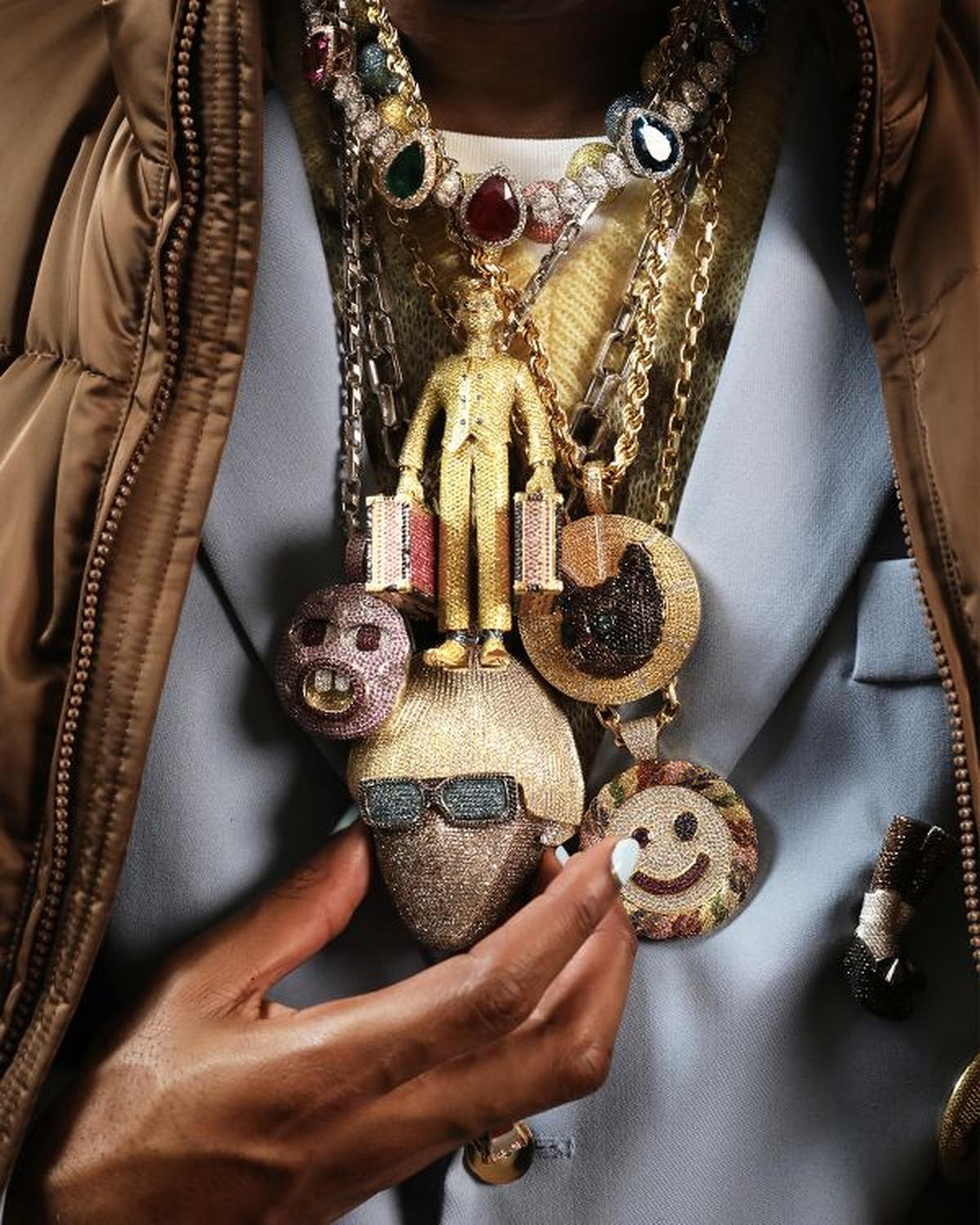
Tyler, The Creator
| Photo Credit:
Photograph by Cam Hicks
“I’ve always been interested in the way hip-hop touches part of our shared humanity and how the visuals of hip-hop — including the jewellery — are expressed through fashion. This included ways of dressing and posing, along with sneaker culture and the politics of fashion,” shares Vikki, who is joined by the exhibition’s co-curators Kevin “Coach K” Lee, founder and COO of Quality Control Music, and Karam Gill, creative director and filmmaker behind the 2021 documentary series Ice Cold.
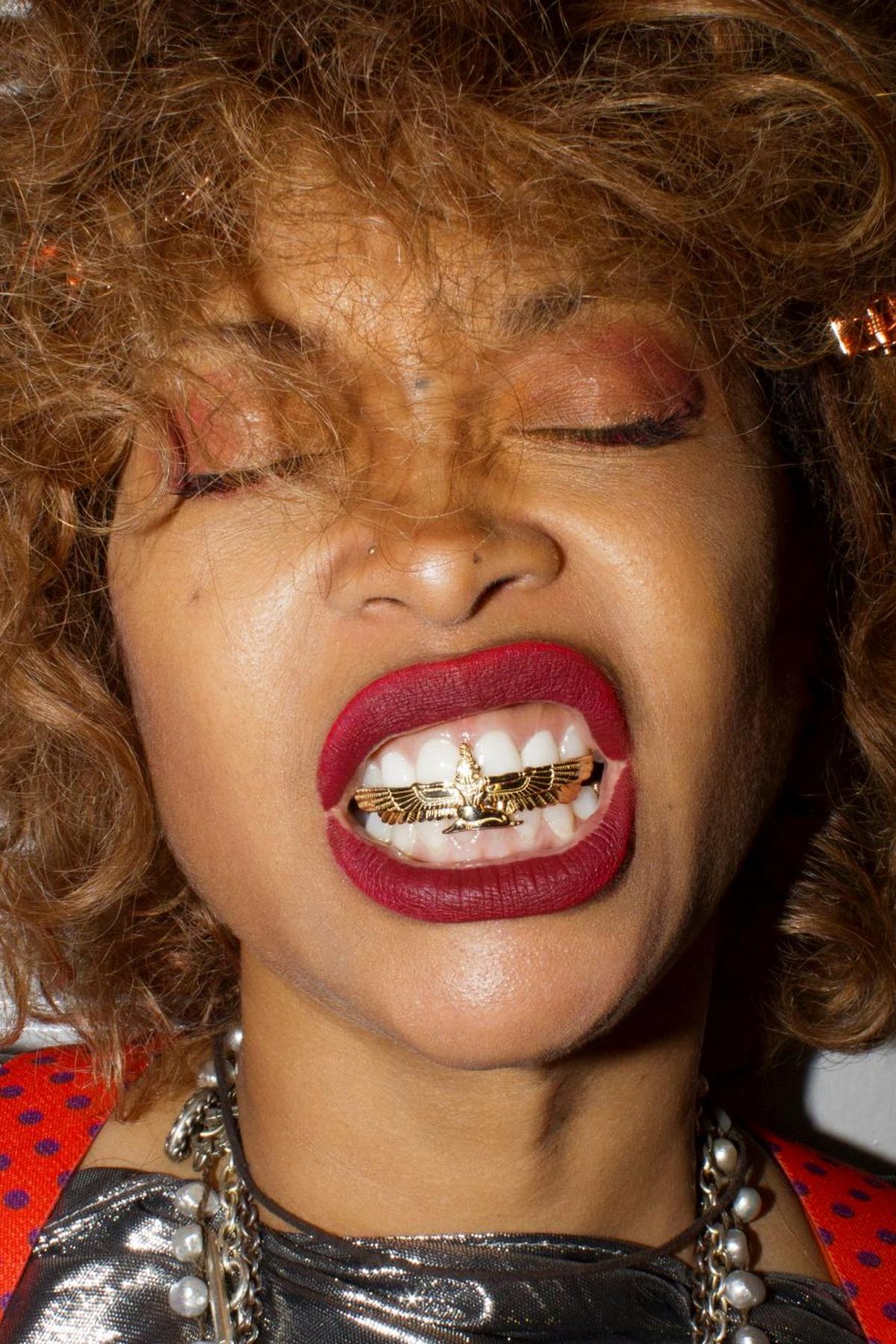
Erykah Badu
| Photo Credit:
Photograph by Tony Krash
With a total of 66 jewellery pieces on display, the exhibition has been curated over a period of one year, and it was not an easy feat. “There were many challenges: One was to convince all the artistes to part with their jewellery for a year; and the other one was that a lot of the pieces that I had written about in the book and had reached out for were no longer there. They had either been lost or stolen. Some had been traded in or melted down in times of hardship. One example of that is 50 Cent’s spinner medallion, which is an iconic piece, the other one is rapper Cam’ron’s spinning globe piece — those were the two pieces that I was really hoping to get in the show, but they no longer exist,” says Vikki.
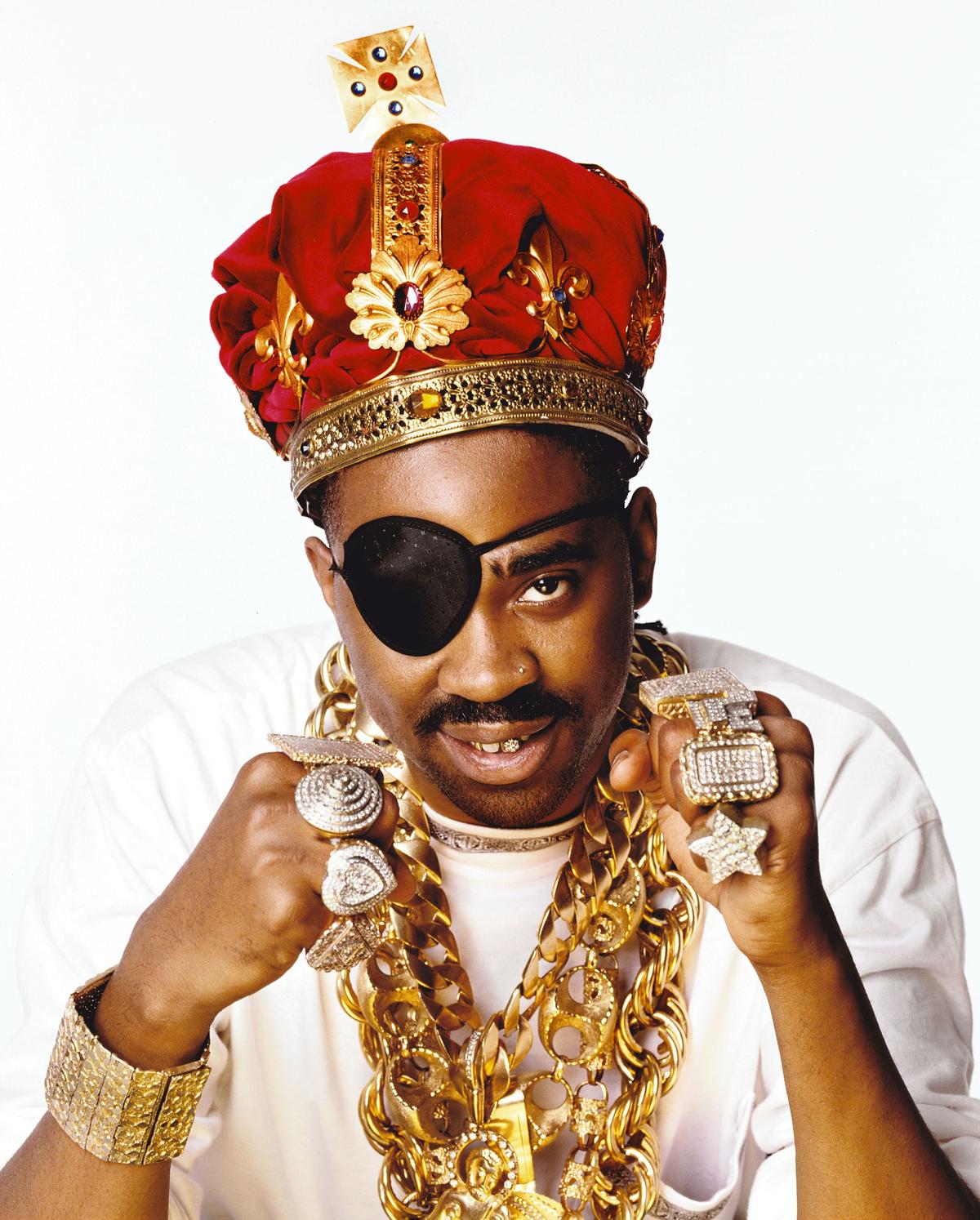
Slick Rick
| Photo Credit:
Photograph by Janette Beckman, Courtesy of Fahey/Klein Gallery
When it comes to hip-hop fashion, Vikki started noticing how jewellery was used as a communication tool to assert identity. “Style is a visual dialogue. Hip-hop took that dialogue and, with clarity of vision and Black diasporic history, elevated all the way to global dominance — unapologetic, charismatic, and dripping in street savvy. Artistes use jewellery to express their individuality, their identity, allegiance to neighbourhoods, crews, brotherhoods, label affiliations etc.,” she observes.
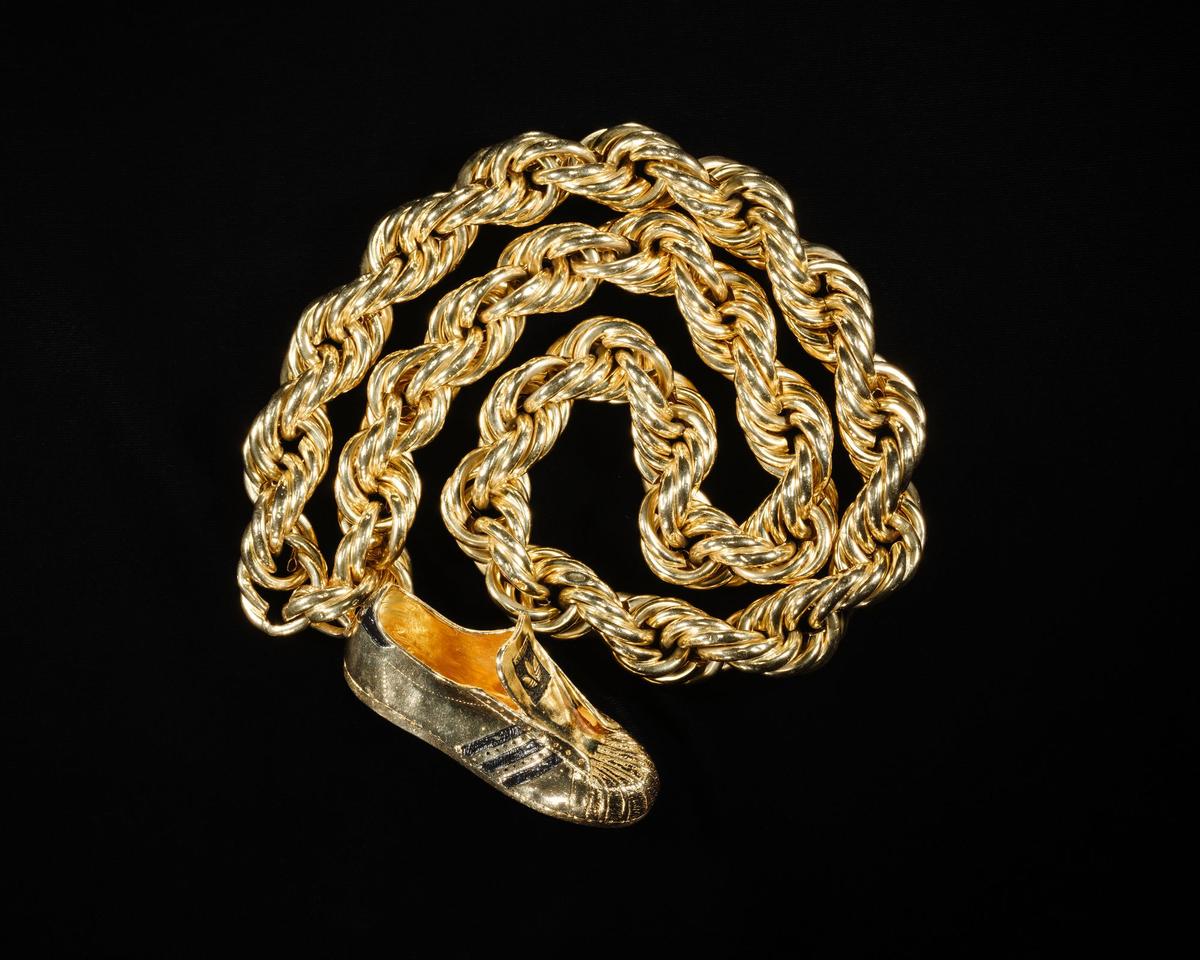
Following Run-DMC’s 1986 song “My Adidas,” Adidas struck a first-of-its-kind endorsement deal with the group, giving each member one of these 14-karat gold sneaker-shaped pendants.
| Photo Credit:
Special arrangement
Interestingly, two of the oldest jewellery pieces on view are Kool Herc’s leather medallion and DJ Divine’s nameplate from the late 1970s. The retrospective evolves from pieces like an Adidas pendant owned by Jam Master Jay and Roxanne Shanté’s ring called the Juice Crew ring to the 90s and 2000s.
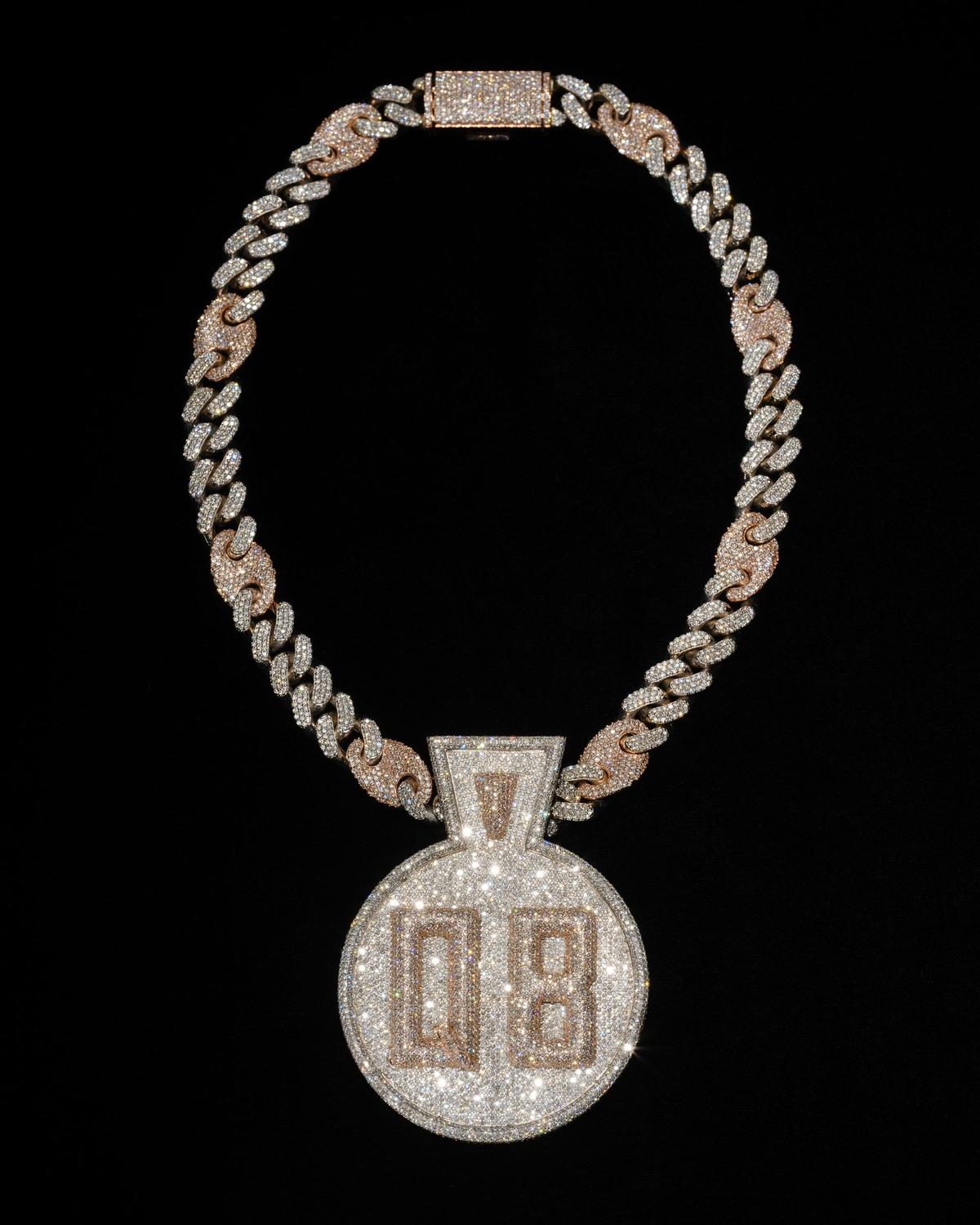
Featuring white and rose gold, this custom diamond-encrusted Queensbridge pendant was commissioned from Pristine Jewelers by Nas in 2018 to commemorate Queensbridge Houses in Queens, New York, where he grew up.
| Photo Credit:
Special arrangement
“That’s when hip-hop started to step into its power, when it became more of an industry. You start seeing pieces from Nas, like the Queensbridge pendant, and Wu-Tang Clan’s Ghostface Killah’s golden eagle bracelet or arm cuff, which has been a big crowd-pleaser. You have Nicki Minaj’s Barbie pendant, which is a great example of this kind of nameplate history,” says Vikki.
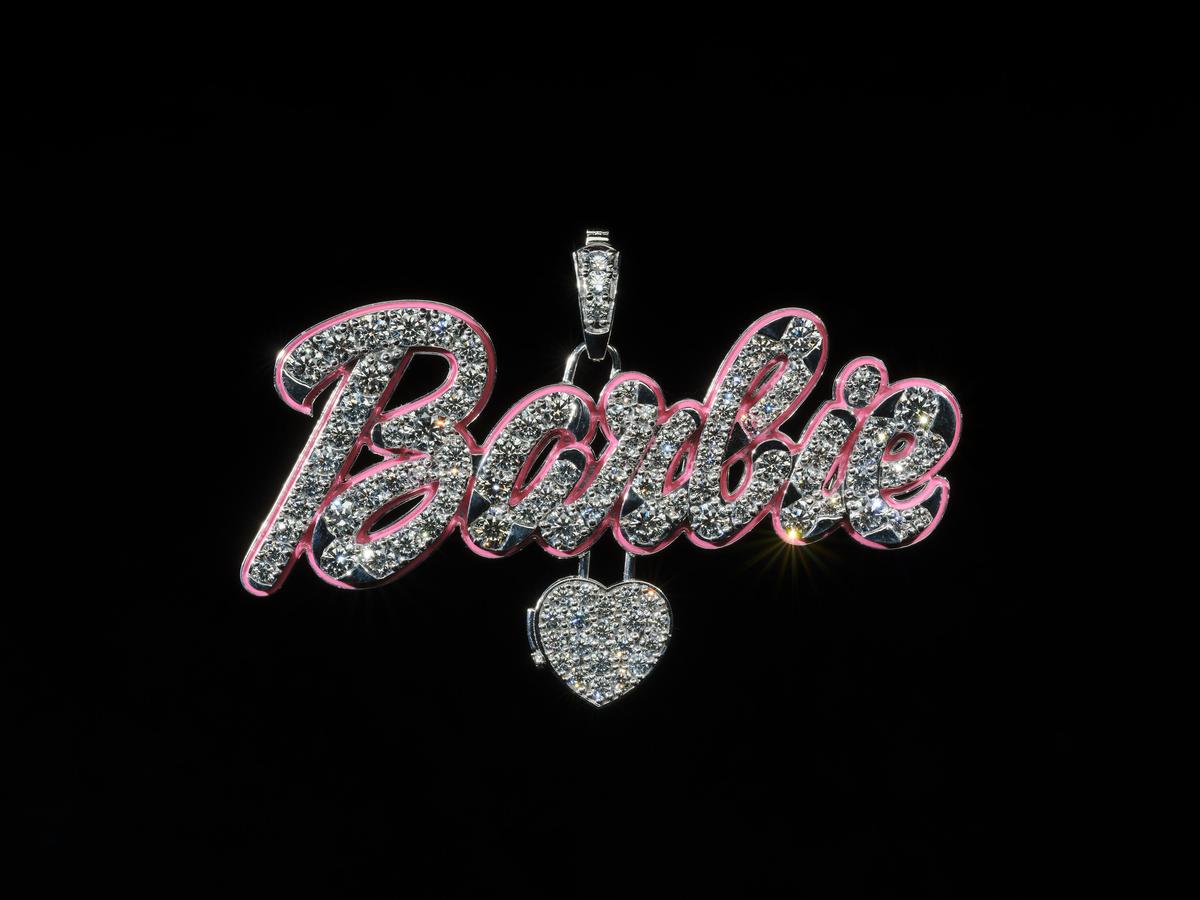
Nicki Minaj’s iconic Barbie pendant—which boasts 54.47 carats of diamonds on 18-karat gold and bright Barbie-pink enamel—was made by Ashna Mehta in 2022 and is the most recent commissioned by Minaj, whose first Barbie pendant dates to 2009.
| Photo Credit:
Special arrangement
While viewing hip-hop’s impact on global culture, especially fashion, Vikki is invested in weaving a detailed mosaic that intersects uncomfortable realities, particularly the ones associated with the politics of race. She doles out ample examples of systemic ostracism that was meted out to the hip-hop community and the concomitant rise of designers like Dapper Dan who made early custom leather pieces for rappers. “He started making them because the big designers didn’t want to work with hip-hop artistes. Since the big brands weren’t catering to hip hop artistes, both, in terms of styles and level of customisation, jewellers based out of neighbourhoods, like Jacob the Jeweler, Tito Caicedo, and Eddie Plein, worked with the artistes,” shares Vikki.
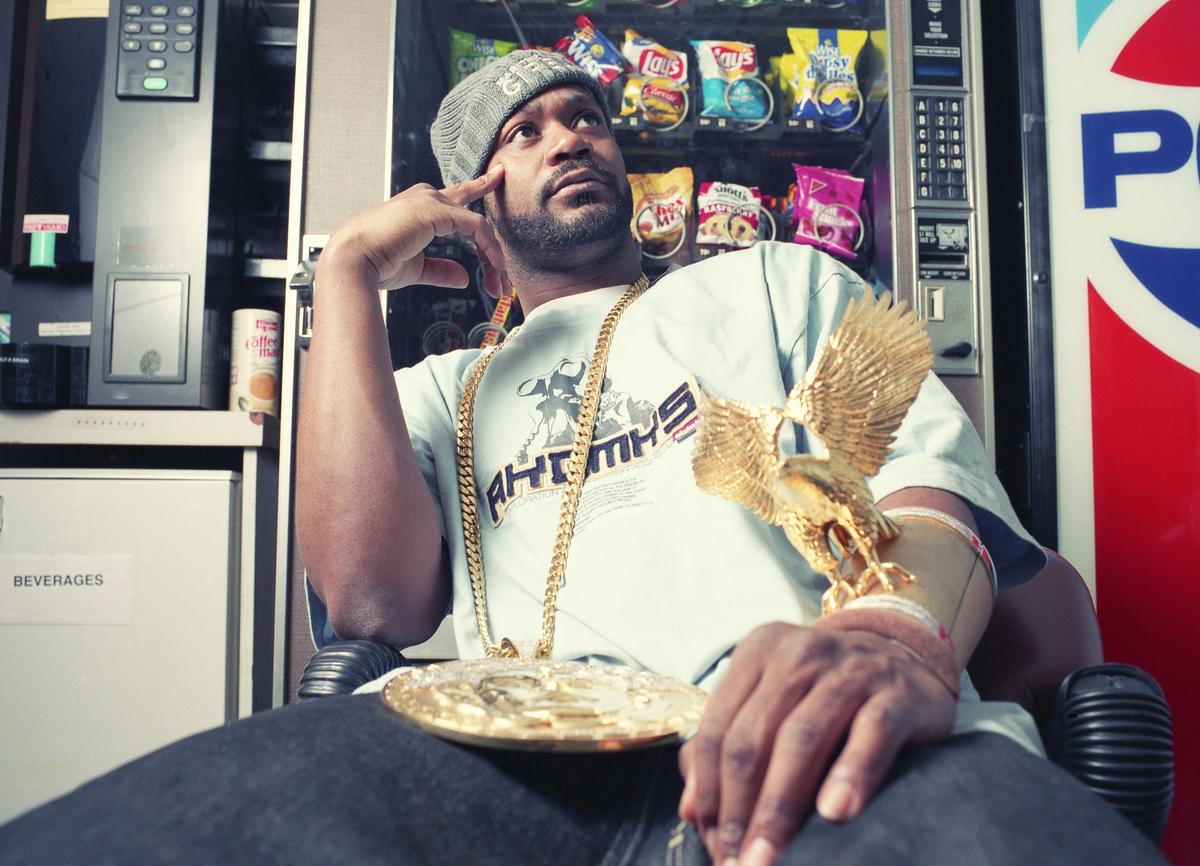
Ghostface Killah
| Photo Credit:
Photograph by Atsuko Tanaka
She states that with hip-hop jewellery, it is almost impossible to separate gemstones from the bigger narrative of politics, identity and race, and historical complexity. “That’s where I wanted to start as the foundation for this story. Setting the tone of street culture, African aesthetics and the historical connotations were really important,” she signs off, crediting the rise of street fashion to the genre that got sneakers and sportier motifs to the runways that dictate high-fashion trends.
On till January 5, 2025, in The American Museum of Natural History, New York. The articles on view are not for sale.
Through the prism
Here’s a list of must-see jewellery at the exhibit:
1. A glittering crown, eye-patch, and a five-foot-long chain from Slick Rick, a senior advisor for the exhibition, who pioneered the royal motif in hip-hop.
2. A multi-coloured, fully-articulated LEGO minifigure pendant commissioned by A$AP Rocky
3. Biz Markie’s brushed gold nameplate, made by K & I jewelers in Brooklyn’s Albee Square Mall
4. A crown-shaped Drama King pendant crafted in Harlem for DJ Kay Slay
5. A large plastic clock worn by Public Enemy rapper and hype man Flavor Flav — one of his many signature clock pendants that became his calling card.
6. The artiste’s proof for The Notorious B.I.G.’s legendary gold Jesus piece — an iconic symbol that came to represent faith, struggle
7. A diamond-studded Roc-A-Fella medallion made in honour of the record label co-founded by Jay-Z
8. A necklace owned by Eve representing Ruff Ryders, a label that launched her career and that of other hip-hop greats, including DMX.
9. A dazzling necklace designed for Tyler, the Creator, to mark his Call Me If You Get Lost album that incorporates over 23,000 hand-set stones and a bell-hop-shaped pendant.
10. A white gold and diamond grill set designed for Bad Bunny
11. A gold We The Best necklace owned by DJ Khaled
12. An opal and white-gold grill set made for Erykah Badu
Published – November 22, 2024 03:42 pm IST

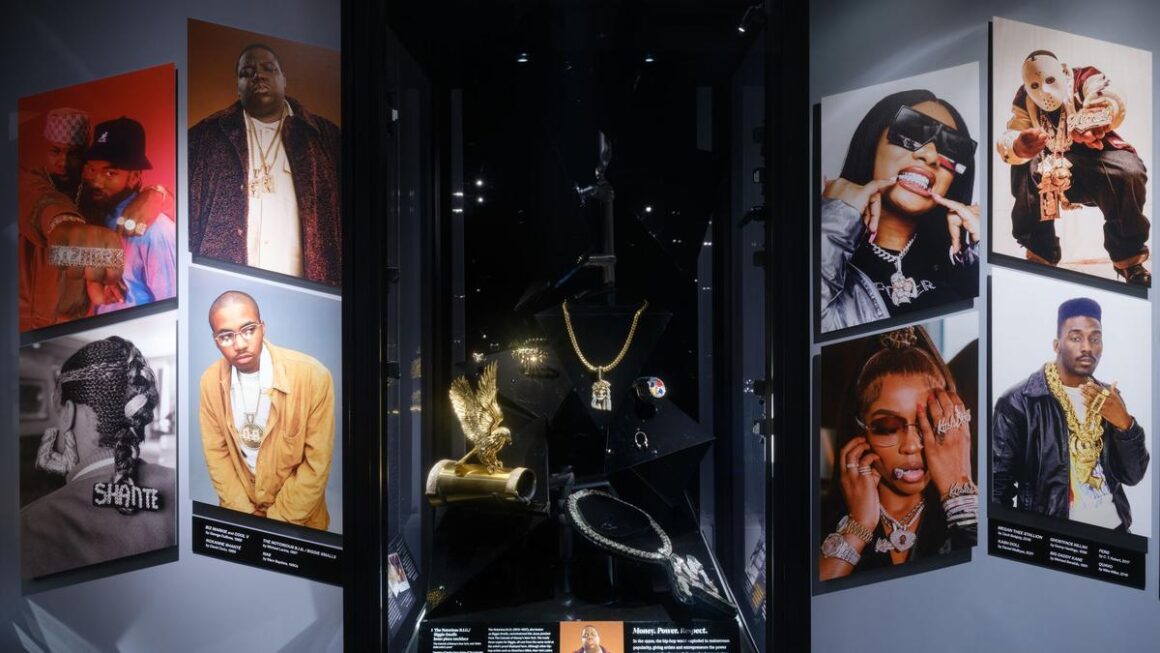
Leave a Reply